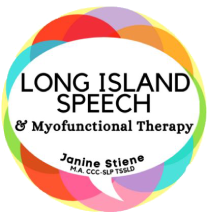Blog
Speech Sound Development
Speech Sound Development
Speech sounds begin to develop from the time a baby vocalizes their first babble (which is when an infant appears to be experimenting with sounds) to about 8 years of age (middle of elementary school). When sounds are developing, children may demonstrate omissions, substitutions, or inconsistent productions. Typically these errors should disappear by a certain age. Below shows the range of ages at which most children are able to make consonant (non-vowel) sounds.
Early Developing Sounds
Between ages 1-3
/m/ as in “mama”
/b/ as in “baby”
/p/ as in “pop”
“y” as in “you”
/n/ as in “no”
/w/ as in “we”
/h/ as in “hi”
/k/ as in “cup”
/g/ as in “go”
/d/ as in “daddy”
/t/ as in “two”
Middle Developing Sounds
Between ages 3-6 ½
“ng” as in “running”
/f/ as in “fish”
/v/ as in “van”
“ch” as in “chew”
“j” as in “jump”
Late Developing Sounds
Between ages 5 -7 ½
“sh” as in “sheep”
/s/ as in “see”
“th” as in “think”
“th” as in “that”
/r/ as in “red”
/z/ as in “zoo”
/l/ as in “like”
“zh” as in “measure”
Each speech sound has a range of when they should be developed. There is a wide range of when your child will master the production of the different sounds. It is difficult to decide what age a child should master a sound with 100% accuracy. These sets of norms can be helpful when deciding if a child is typically developing sounds or may need speech therapy to assist in correcting the production of a sound.
I often have parents inquiring by what age their child should produce certain sounds.
I hope this is helpful! 🙂
-ToniAnne




